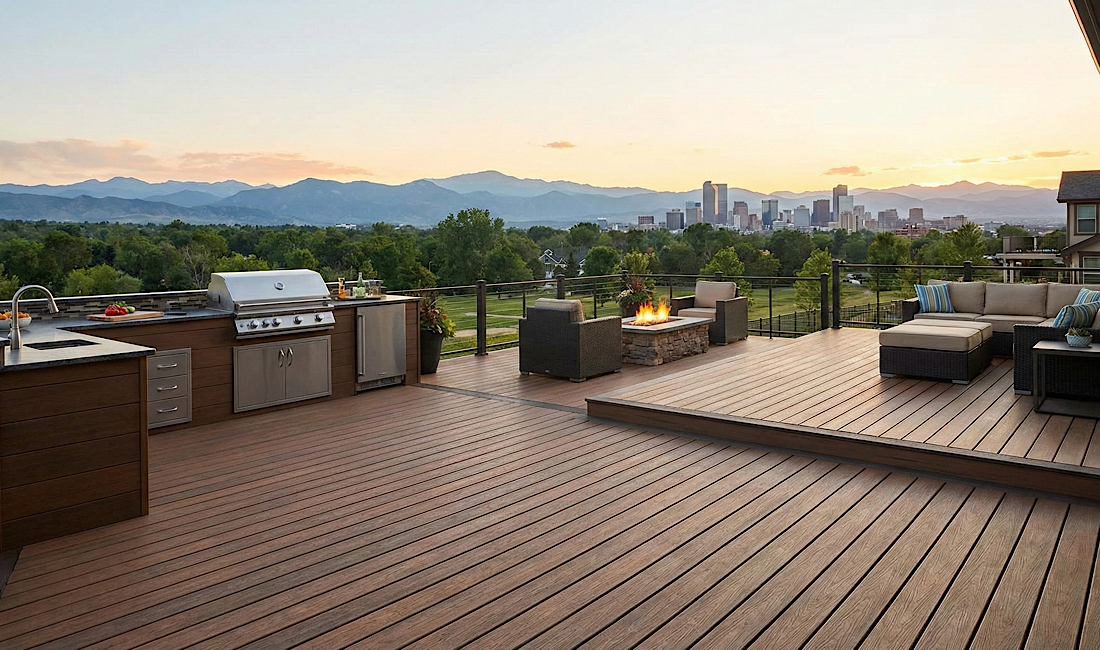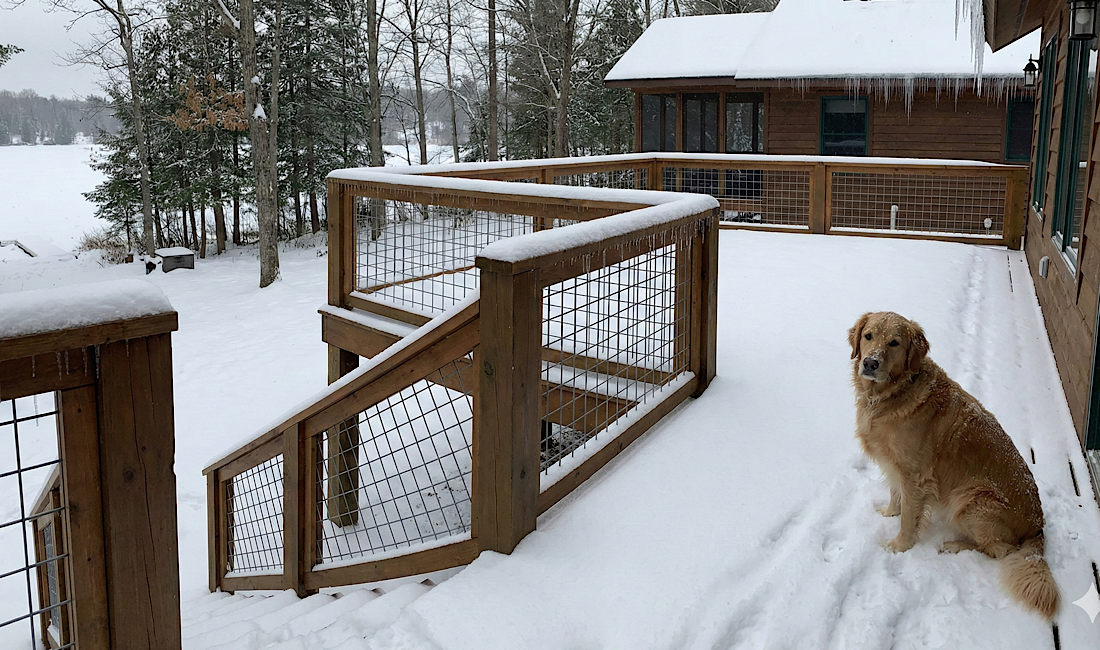The Hidden Benefits of Steel Deck Framing for Colorado Winters
Colorado homeowners are no strangers to extreme seasonal swings. From intense summer sun to heavy snowfall and freeze-thaw cycles in winter, outdoor structures are under constant stress. Decks, in particular, face significant challenges. While traditional wood framing has been the industry standard for decades, more homeowners and contractors in Denver are turning to steel deck framing for its long-term durability and performance. Centennial Custom Decks has seen firsthand how steel construction offers resilience that wood simply cannot match, especially in Colorado’s demanding climate.
This article explores why steel deck framing is becoming the superior choice for Denver homeowners who want a deck that not only looks great but also withstands decades of use with minimal maintenance.
Why Wood Deck Frames Struggle in Denver
Wood deck framing has long been the go-to material because it is affordable and widely available. However, in Colorado’s environment, wood faces serious drawbacks that accelerate deterioration.
- Moisture absorption: Snowmelt and rain seep into untreated wood, leading to swelling, warping, and rot.
- Freeze-thaw damage: Rapid temperature fluctuations cause wood fibers to expand and contract, weakening structural integrity.
- Insects and pests: Termites and carpenter ants are a concern even in colder climates, and wood remains vulnerable without ongoing chemical treatments.
- Maintenance demands: Wood requires sealing and frequent inspections to ensure safety. Over time, repair costs accumulate.
In Denver, where decks are subjected to 57 inches of average annual snowfall, wood frames often require replacement in 10–15 years. Steel deck framing, by contrast, can last up to 60 years or more with proper installation, making it a clear long-term investment.
The Structural Advantages of Steel Deck Framing
Superior Strength and Stability
Steel framing provides unmatched load-bearing capacity. Unlike wood, which can sag under snow accumulation, steel maintains its shape and support over time. For Denver homeowners, this means decks are safer during heavy winter storms when snow loads increase dramatically.
Resistance to Rot and Decay
Steel does not absorb moisture, eliminating the primary cause of rot in wood. It also prevents the fungal decay and mildew issues common in damp conditions. This makes it ideal for decks in shaded yards or homes located near the foothills where snow lingers longer.
Precision and Consistency
Wood varies in quality and density, leading to uneven deck surfaces or shifting over time. Steel components are manufactured with exact specifications, resulting in straighter lines, more stable surfaces, and a more professional finish.
Fire Resistance
Colorado’s dry summers and increasing wildfire concerns make steel an attractive choice. Unlike wood, which is combustible, steel framing is non-flammable and adds an extra layer of protection to outdoor spaces.
Long-Term Value of Steel vs. Wood
Although the initial cost of steel deck framing is higher than traditional wood, its long-term value far outweighs the upfront investment.
- Lifespan: Steel can last four times longer than pressure-treated wood.
- Maintenance: Minimal upkeep compared to regular sealing and repair needed for wood.
- Resale value: Homes with steel-framed decks often command higher resale prices due to durability and reduced liability.
- Cost savings: Eliminates the recurring expenses of chemical treatments, pest control, and frequent board replacements.
According to industry studies, the lifecycle cost of a steel-framed deck is often 20–30% lower than wood when factoring in replacement and maintenance. For Denver homeowners planning to stay in their homes for more than a decade, steel is the more economical choice.
Performance in Colorado Winters
The true test of any deck is how it performs through winter. Steel excels under conditions that typically shorten the life of wooden frames.
- Snow load resistance: Steel beams support heavy snow without bowing.
- Ice and moisture resilience: Steel framing resists splitting from freeze-thaw cycles.
- Wind durability: Steel fasteners and joists hold firm during Denver’s strong winter gusts, reducing the risk of structural loosening.
- No seasonal swelling: Wood expands in wet winters and shrinks in dry summers, causing boards to loosen. Steel maintains consistent dimensions year-round.
Centennial Custom Decks highlights that one of the biggest homeowner frustrations is wobbly railings and uneven boards after winter. With steel framing, decks retain their original fit and finish, delivering peace of mind even after harsh storms.
Sustainability and Environmental Impact
Steel is not only more durable but also more sustainable. Most steel framing products are made from recycled materials and are themselves recyclable at the end of their life cycle. This reduces the environmental impact compared to chemically treated lumber, which often cannot be reused.
Additionally, the longevity of steel means fewer replacements over the decades, reducing demand for raw resources and lowering overall waste. For Colorado homeowners who value eco-friendly solutions, steel deck framing provides both performance and sustainability.
Considerations Before Choosing Steel Deck Framing
While steel offers undeniable benefits, homeowners should weigh certain considerations:
- Upfront investment: Steel framing typically costs more initially than wood.
- Professional installation required: Steel components require specialized tools and expertise. Centennial Custom Decks provides trained installation teams to ensure proper assembly.
- Design planning: Steel framing allows for longer spans and unique designs but requires early planning to integrate with decking materials like composite or hardwood.
These factors make working with an experienced contractor critical. Centennial Custom Decks helps homeowners balance budget, design goals, and long-term durability when deciding on framing options.
Building for the Future
As Colorado homeowners seek low-maintenance outdoor spaces, steel deck framing has emerged as the strongest choice for resilience, safety, and sustainability. Centennial Custom Decks designs and installs decks that last decades—standing strong through Colorado’s toughest winters and hottest summers.
Build a deck designed for Colorado’s climate. Call Centennial Custom Decks today at (720) 273-2527 to explore the benefits of steel deck framing.
FAQs About Steel Deck Framing in Denver
How much longer does steel deck framing last compared to wood?
Steel deck framing can last 50–60 years or more, while wood framing typically lasts 10–15 years in Denver’s climate before needing replacement.
Does steel framing require maintenance?
Minimal maintenance is required. Unlike wood, steel does not need sealing or chemical treatments. Occasional inspections are recommended, but steel remains highly resistant to environmental damage.
Is steel deck framing compatible with composite or wood decking boards?
Yes. Steel framing supports all common deck surfaces, including composite, PVC, and hardwood boards. It provides straighter, more secure support for a professional finish.
Does steel get slippery in winter?
The framing itself is not a walking surface—deck boards cover the steel structure. Therefore, traction depends on the chosen decking material, not the framing.
Is steel framing more expensive than wood?
The upfront cost is higher, but when factoring in maintenance and replacement, steel proves more economical over its lifespan. Many Denver homeowners see it as an investment rather than an expense.
Can steel withstand Denver’s freeze-thaw cycles?
Yes. Unlike wood, steel does not swell, shrink, or crack under freeze-thaw conditions. It maintains structural integrity through harsh winters without warping.
Is steel framing eco-friendly?
Yes. Steel is highly recyclable and often produced from recycled materials, making it a sustainable choice for environmentally conscious homeowners.



